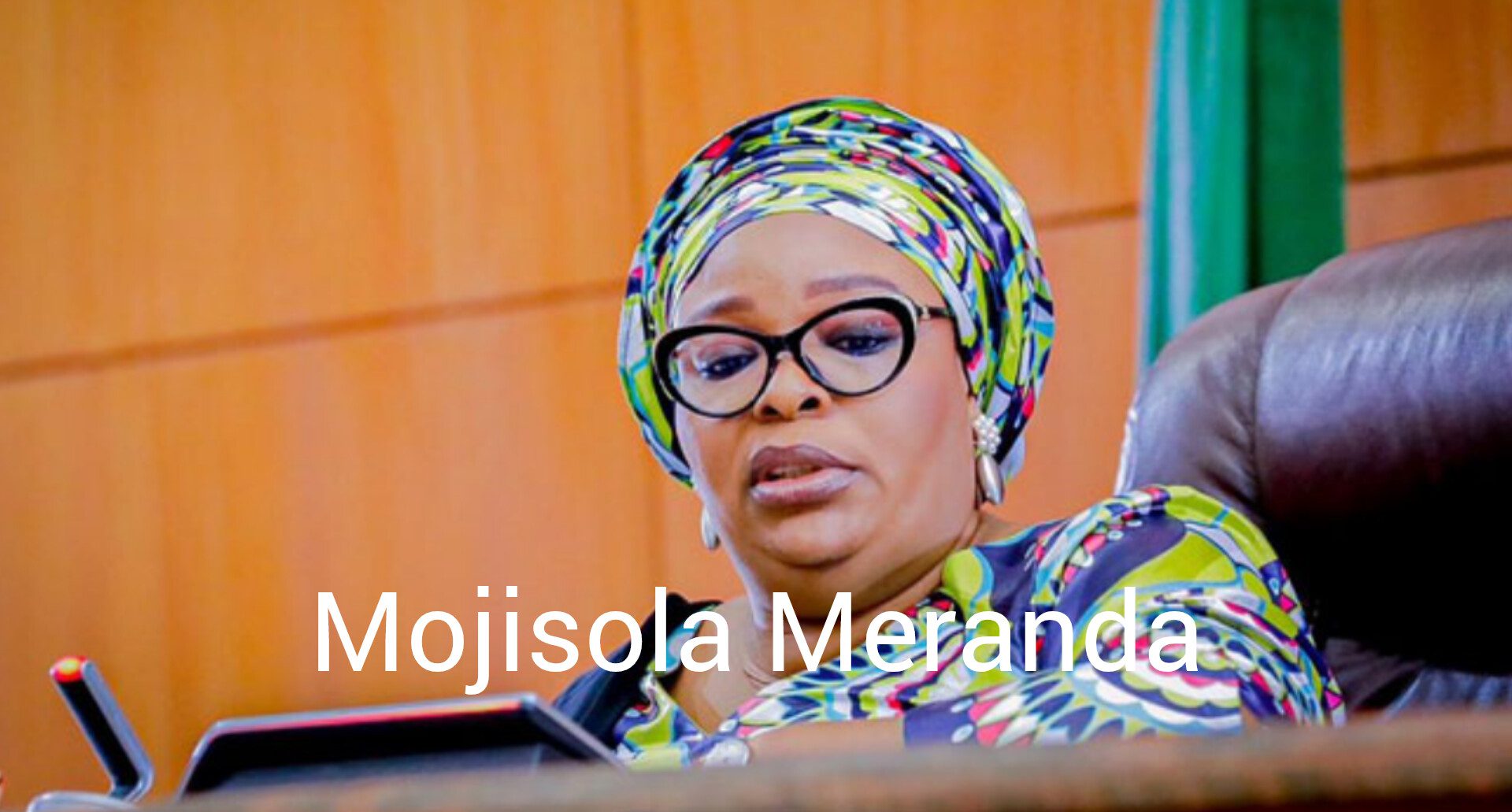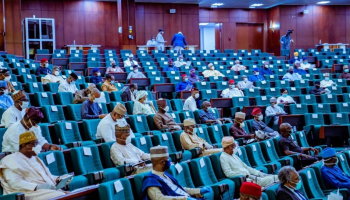***As Akpabio steps down motion
The 10th Senate recorded its first rowdy session on Wednesday following the rejection of a motion to debate alleged uneven distribution of N500 billion credit facilities to Micro, Small and Medium Scale Enterprises (MSMEs) across the country by Senate President Godswill Akpabio
Upon the commencement of plenary session, Chief Whip of the Senate, Mohammed Ali Ndume had drawn the attention of the Senate to a motion he sponsored on the same issue of imbalance in the distribution of the money adding that the outcome of that motion was not concluded before the end of the tenure of the 9th Senate.

He sought the permission of the Senate president to move the motion for debate afresh.
Before Akpabio could speak, Senator Solomon Adeola, rose in disagreement with Ndume’s position that the last Senate had not concluded the matter.
Adeola argued that from his discussion with the chairman of the ad hoc committee set up to investigate the matter, a report was done on the motion and was sent to the Presidency for implementation.
Apparently piqued by Adeola’s submissions, Senator Aliu Ahmed Wadada (SDP, Nasarawa state), rose angrily shouting point of order! Point of order!!
When recognised Wadada, said he is seriously opposed to the imbalance experienced in the distribution of the money adding that his senatorial District, his state and the entire North was grossly cheated.
Wadada became more furious when the Senate president attempted to rule him out of order on the grounds of citing improper order.
At the point of ruling on the matter, Ndume again rose to his feet and insisted that it is morally wrong that the whole North was given only 11% while only Lagos State got 47% of the loan. He added that his state, Borno State got only 1%.
Akpabio interrupted him stating that the motion had to be stepped down for more consultation.
“Let me make it clear that the fact that the motion is stepped down does not mean it cannot be reintroduced” Akpabio explained.
The motion which had already been listed in the Senate’s Order Paper for debate and sponsored by Ndume, Senator Bomai Ibrahim Mohammed (Yobe South), and Ya’u Sahabi (APC, Zamfara North) was tagged “Un-even Disbursement of Half a Trillion Naira loan to the six geo-political zones by the Development Bank of Nigeria”.
It pointed out that the Bank’s Annual Integrated Statutory Report 2021 obtained on 13 July, 2022, from the organization’s website showed that the bank disbursed a loan worth Four Hundred and Eighty Three Billion Naira (N483, 000, 000, 000) out of which only 11% went to the 19 states of Northern Nigeria, while 47% went to Lagos State alone”
” The Senate should also be aware that the 11% of the loan that went to the North totals about Fifty Three Billion, One Hundred and Thirty Million Naira (N53, 130, 000, 000) while the 47 percent that went to Lagos State alone totals Two Hundred and Twenty Seven Billion and Ten Million Naira (N227, 010, 000, 000) only: Observes that the loans were given out to the Six Geopolitical Zones and the data showed that the South-West accessed the lion’s share 57% of the total loan, which is estimated to be around Two Hundred and Seventy Four Billion, Seven Hundred and Forty Million Naira (N274, 740,000,000) only”
He said it is worrisome that “the South-South Zone accessed 17%, which is roughly Eighty One Billion, Nine Hundred and Forty Million Naira (81, 940, 000, 000) only; the Federal Capital Territory (FCT) and the North-Central Zone accessed 11%, which is Fifty Three Billion and Twenty Million Naira (N53, 020, 000, 000) only, the South- East Zone accessed a paltry 9%, which is roughly Forty Three Billion, Three Hundred and Eighty Million Naira (N43, 380, 000, 000) only while the North-West which has 5% accessed Twenty Four Billion, One Hundred Million Naira (N24, 100, 000, 000) only and the North-East accessed only 1%, the least share of the total loan at roughly Four Billion, Eight Hundred and Twenty Million Naira (N4, 820, 000, 000) only”.
He noted that “the Development Bank of Nigeria exists to alleviate financing constraints being faced by Micro, Small and Medium Scale Enterprises (MSMEs) in Nigeria through providing finance, partial credit guarantees, and technical assistance to eligible financial intermediaries on a market-conforming and fully financially sustainable basis”
According to the motion, “the top five sectors considered for the loan are oil and gas (42.0%), Manufacturing (16.0%) agriculture, forestry and fishery (7.2%), trade and commerce (6.3%), and transportation and storage (3.5%)”
When the issue was first raised last year, the then minister of Finance, Zainab Ahmed, said the federal government would review the criteria currently being used by development banks in the country to disburse loans to medium and small scale enterprises (MSMEs) in order to ensure geographical spread.
The Minister stated this when she appeared before the Senate ad-hoc committee set up to investigate the alleged uneven disbursement of the N500 billion loan.
Ahmed however, cautioned that such review would not be too flexible to ensure the sustainability of the development banks.
The minister said, “I have been given copies of reports already submitted to the committee by the development bank.
“The criteria to access funds from the development banks are set by the supervising ministry. The Development Bank of Nigeria was set up to enhance the development of the MSMEs across the country but it doesn’t lend directly to the beneficiary businesses. Instead it lends to them through microfinance banks.
“The MFBs also provide criteria for the lenders and do credit analysis. They send their reports to the DBN which would collate the report and approve for disbursement.”
“The criteria set by the DBN was reviewed by the regulator and approved by CBN. The Bank of Industry was set up to also stay healthy as a bank. It has done very well in terms of loans repayment. it is the only financial development institution that is giving dividends to the federal government.” She had said.



